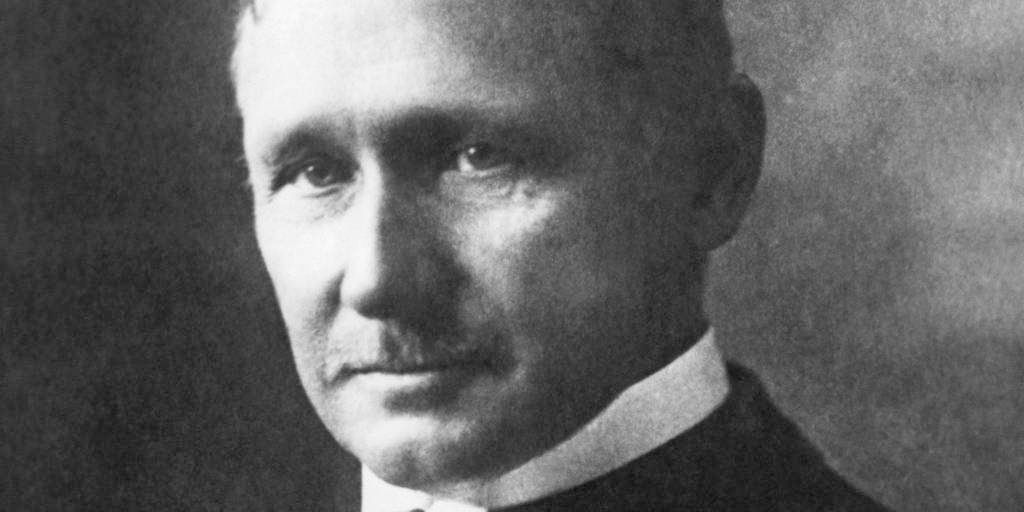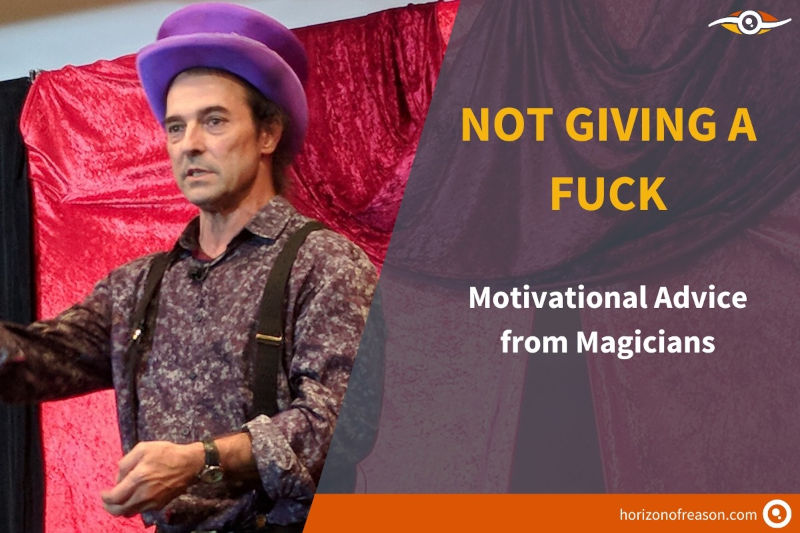
Management Philosophy: Exposing the Manager’s New Clothes

Peter Prevos |
1551 words | 8 minutes
Share this content
Although brick-and-mortar book-shops are slowly going the way of the thylacine, their contents still reflect society’s inclinations. The size of the management section in most bookshops compared to the philosophy section illustrates that books about business success are some of the most important writings of our time. Management philosophy is one of the most influential stream of thinking in contemporary society.
There is a myriad of books that explain how we can become great instead of just settling for being good, how to develop the habits of highly effective people, and how to motivate ourselves. A uniformly positive tone characterises popular management books, and they uncritically divulge their secrets to anyone hankering for corporate glory. The ideas in these books can be dangerous because, for the millions of people subjected to them, the outcome is generally negative. Management initiatives inspired by the latest fads are more likely to cause stress and misery than to result in the promised success. To paraphrase Homer Simpson, Harvard Business Review is the cause of, and solution to, all problems in business.

The Origins of Management Philosophy
Management thinkers play an unrecognised influential role in shaping contemporary history. Time Magazine's list of the most influential people of the previous century does not contain any of capitalism's prominent scholars. Frederick Taylor, Elton Mayo, Peter Drucker and other business gurus are noticeable only through their absence. However, their influence on the eighty thousand hours of our lives we spend at work is immense. These thinkers continue to shape the world in which we work and live.
In the wake of these pioneers, contemporary managers subject people in factories, cubicles, construction sites and other places of work all around the world to a continuously changing stream of ideas on how to create better businesses. Management might decide to implement Total Quality Management but find themselves in endless meetings trying to figure out why productivity slumped. When that doesn't work, they agree that the culture must be wrong and embark on a journey In Search of Excellence, leaving their business in a constant state of flux, always seeking new ways to improve the bottom line.
The origin of these developments lies with American engineer Frederick Taylor, who is often heralded as the inventor of scientific management. Taylor’s thinking was emblematic of the rationalist and pragmatic spirit of the late nineteenth century. It was a time when the successes of the exact sciences led to the belief that the scientific paradigm of the physical world also applied to the social world. Taylor believed that organisations could be controlled using mathematical principles, in the same way as steam engines work following the laws of physics. Taylor is the Plato of management science, and contemporary ideas of business success can be viewed, paraphrasing English philosopher Alfred North Whitehead, as merely a series of footnotes to Taylor's work. The basic idea contained in popular business literature is that the social reality of the firm can be manipulated using simple scientific models.
The ideal workplace is like a termite colony.
When delving into Taylor's magnum opus, The Principles of Scientific Management, we find that the foundations of contemporary management thinking are troublesome. His attitude towards workers is reminiscent of Kant’s “_Vormünder_”—those who speak for others—as Taylor prevented factory workers from thinking for themselves. He moved all initiative and control from the labourers to management. Taylor’s ideal workplace is like a termite colony: rigid management techniques, designed to convert employees into mindless drones all working towards a common goal. Taylor based his ideas on a series of experiments conducted on men hauling lumps of pig-iron. His writings expose a disdain for workers: "It would be possible to train an intelligent gorilla to become a more efficient pig-iron handler than any man can be". Taylor's scientific management was the starting point of the capitalist paradigm of viewing human beings as resources in an abstract production process rather than as independent agents who are intrinsically valuable.

The works of Taylor spawned a global industry of management consultants. Management invites these MBA-wielding specialists when they perceive that change is required. In the early days of this noble profession, consultants were mainly involved in crunching numbers to develop the best strategies for mergers, acquisitions and other complicated manoeuvres. More recently their attentions have moved to the softer side of managing an organisation, and consultants now also help businesses to improve their work culture.
There’s no clear understanding of what organisational culture is.
The problem is that there’s no clear understanding of what organisational culture is, and no firm grasp on how to change it to improve business outcomes. Culture is an 'essentially contested concept', unable to be grasped in theoretical models and therefore impossible to be manipulated to achieve predetermined objectives. We can understand culture conceptually, but it is not an object that can be controlled. Consultants are often more akin to a pre-modern shaman than a contemporary doctor in their attempts to heal businesses.
Although consultants proclaim to use rational theories to improve organisations, they use magic symbols and incantations in the form of diagrams and slogans. The managers’ belief in these consultants and their pseudo-scientific tools cause a placebo effect. Although the placebo might reduce the symptoms of a problem, it will not heal the disease. Soon after the consultant has left, the next improvement initiative must be implemented to ensure the symptoms don't reappear. The business consultancy industry is a Perpetuum Mobile, a never-ending movement from one new management theory to the next.
Management Philosophy and the Horizon of Reason
Magical thinking in businesses is, however, not isolated to consultants. Places of work can be viewed through a theatrical metaphor. In this point of view, a workplace is like a theatre in which everybody is an actor playing a predetermined role, following a standardised script and using recognisable props against a carefully designed backdrop. At work, we are not the same people we are at home.
At work, we play the role of the professional, a generic type of human being found only in workplaces. “Being professional” is used as a value judgement, a behaviour pattern to strive for. Professional are expected to behave stoically and purposefully, without letting emotions get in the way. The veil of reason that covers their actions is, however, do not influence transparent. Important decisions are often based on intuition and post hoc justifications, using copious amounts of charts and tables projected onto walls and sketched on flip charts.
The scripts used by professionals have probably introduced more words to the English language than the combined works of Shakespeare. The comparison is, however, only valid in quantity and certainly not the quality of language. Managerial vocabulary does not possess the same poetic potency of the contributions made by the bard of Avon. Most of the vernacular used by managers consist of weasel words that suck the meaning out of language. Even though they are universally mocked through the allegorical game of Buzzword Bingo, words such as 'takeaways', 'innovation' or 'actionable remain popular.
The props of the professional are central to the role they play, with the business suit as the defining article. The business suit is the global uniform of the professional, regardless of cultural background. The suit and tie are symbols of power, in stark contrast with the fluorescent colours commonly worn by the working class. Deviation from this norm is shunned and only allowed during the post-modern ritual of Casual Friday. Even though these props are essential to the role of the professional, the suit and tie do not influence the quality of their decisions. In the words of sociologist Erving Goffman, professionals are "blinding themselves and others to the fact that they hold their jobs partly because they look like executives, not because they can work like executives".
Business success cannot be created by relying on models inspired by the physical sciences.
This critique of the world of the manager shows that business success cannot be created by relying solely on theoretical models inspired by the physical sciences. The dynamics of human organisations are too complex to be controlled through simple axioms and diagrams. Many of management's theories strip organisations of their humanity and replace it with replicable and rational simplifications of social complexity.
The Socratic path invites managers to be philosophically critical and understand what it is they are trying to achieve. Such an understanding cannot come from relying on scientific analysis alone but requires philosophical reflection. Managers should never stop asking “why?” and view problems from multiple angles—including through disciplines not traditionally used in business.
The main lesson, I refuse to use the noun 'learning', often used in business jargon, is that the psychological forces that drive our behaviour are persistent and cannot be manipulated like physical processes. There are no simple rules that can be followed to create the perfect organisation. Businesses should not rely on theories that purport to be scientific; instead, companies need philosophical thinking. Just like Socrates was able to critically reflect on Athenian society by asking questions and not accepting simple explanations, so too can managers improve their understanding by being critical of the status quo.
Share this content


